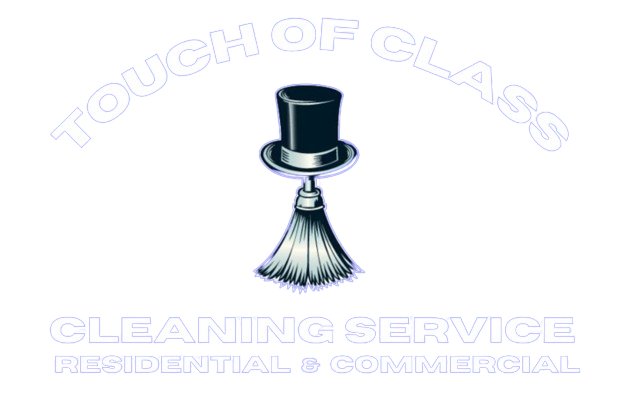High-Quality Cleaning Services in Metro Detroit
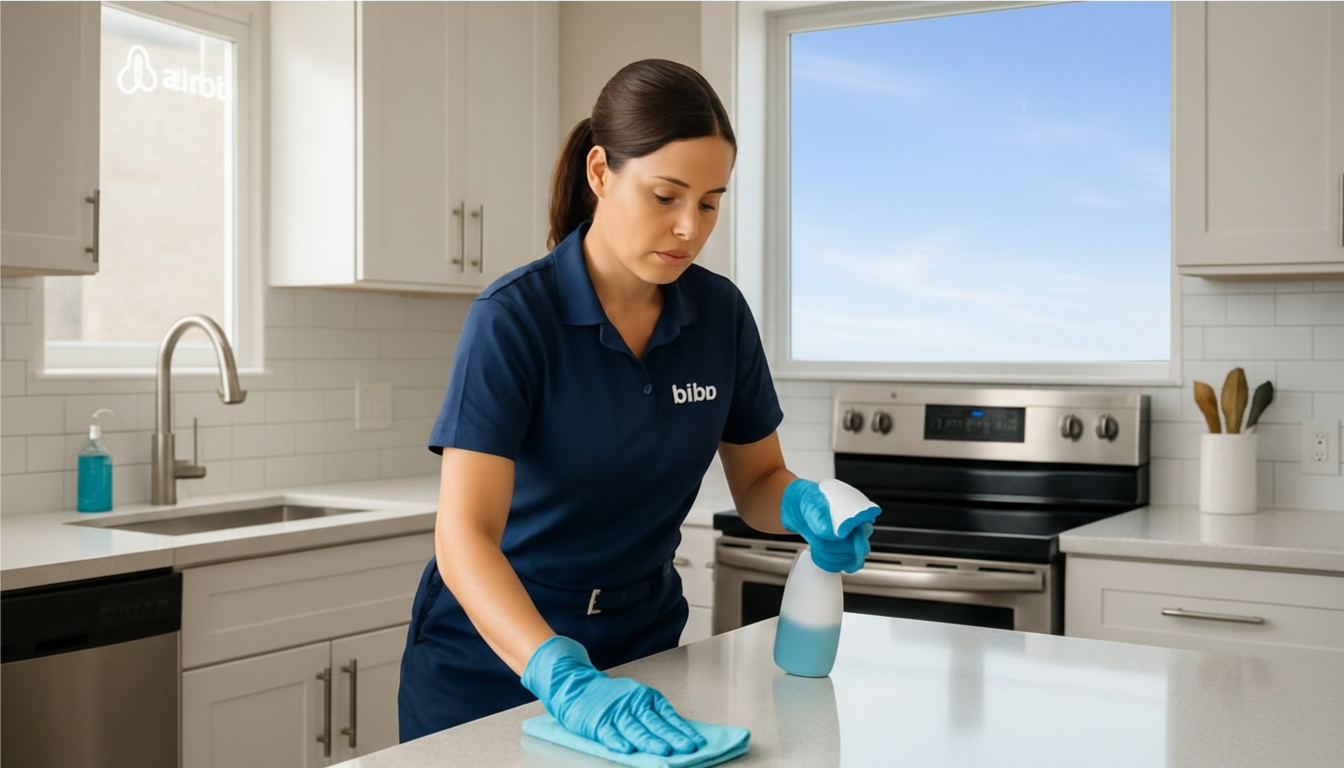
As an Airbnb host in Troy, MI , you operate in a highly competitive and discerning market. While location and amenities are important, the single most critical factor that determines your success, your ratings, and your long-term profitability is cleanliness . In a thriving suburban hub like Troy, where hospitality standards are continually rising, relying on professional Airbnb cleaning services is not merely a convenience—it is a non-negotiable business strategy. From ensuring rapid turnovers to securing a steady stream of five-star reviews, outsourcing your cleaning is the smartest investment you can make to keep your rental business thriving. The High Stakes of Cleanliness in a Competitive Market The Troy, MI, short-term rental landscape is characterized by high guest expectations. As listings multiply, guests are becoming increasingly critical, often comparing your property to those in neighboring areas like Sterling Heights and Clinton Township. According to Airbnb’s own data , over 80% of guests cite cleanliness as their top priority when booking, and a staggering 60% will actively avoid listings with even one negative cleanliness review. Furthermore, hosts must navigate the specific requirements and regulations of the local market to operate legally and successfully. In this environment, a DIY approach to cleaning, while seemingly cost-effective, almost always falls short of the rigorous, hotel-level standards guests expect. The Professional Difference: Specialized Cleaning for Short-Term Rentals The cleaning required for a short-term rental is fundamentally different from standard residential cleaning. It demands a specialized approach that addresses the unique challenges of high-volume hospitality. Professional services, such as those offered by local experts like Touch of Class Cleaning Services in Troy, MI, are equipped with trained staff and proven protocols. They go beyond a quick tidy-up, implementing a systematic deep-cleaning process that covers every detail—under beds, behind appliances, and inside cabinets. They utilize hospital-grade disinfectants to ensure the space is not just visually tidy but truly sanitized, protecting both your guests and your property. This meticulous attention to detail is key to Boosting Your Airbnb Ratings and building a reputation for excellence. Efficiency, Consistency, and Compliance The business case for professional cleaning is built on efficiency and reliability. Airbnb hosts often face tight turnaround times, sometimes with only a few hours between one guest checking out and the next checking in. Professional cleaners are trained to execute a thorough clean efficiently, minimizing downtime and maximizing your earning potential. Crucially, they provide the consistency that guests demand, which directly translates into better reviews and repeat bookings . Moreover, since the pandemic, Airbnb has implemented a strict Enhanced Cleaning Protocol . Professional cleaning teams are trained in these five-step procedures, ensuring your property remains compliant , protecting your listing from penalties, and giving guests confidence in your commitment to hygiene. Visualizing the Professional Standard To truly understand the level of detail and systematic approach required for a five-star turnover, it is helpful to see the process in action. The following video provides an excellent walkthrough of what a comprehensive Airbnb cleaning checklist entails, offering a visual benchmark for the standards your professional service should meet:
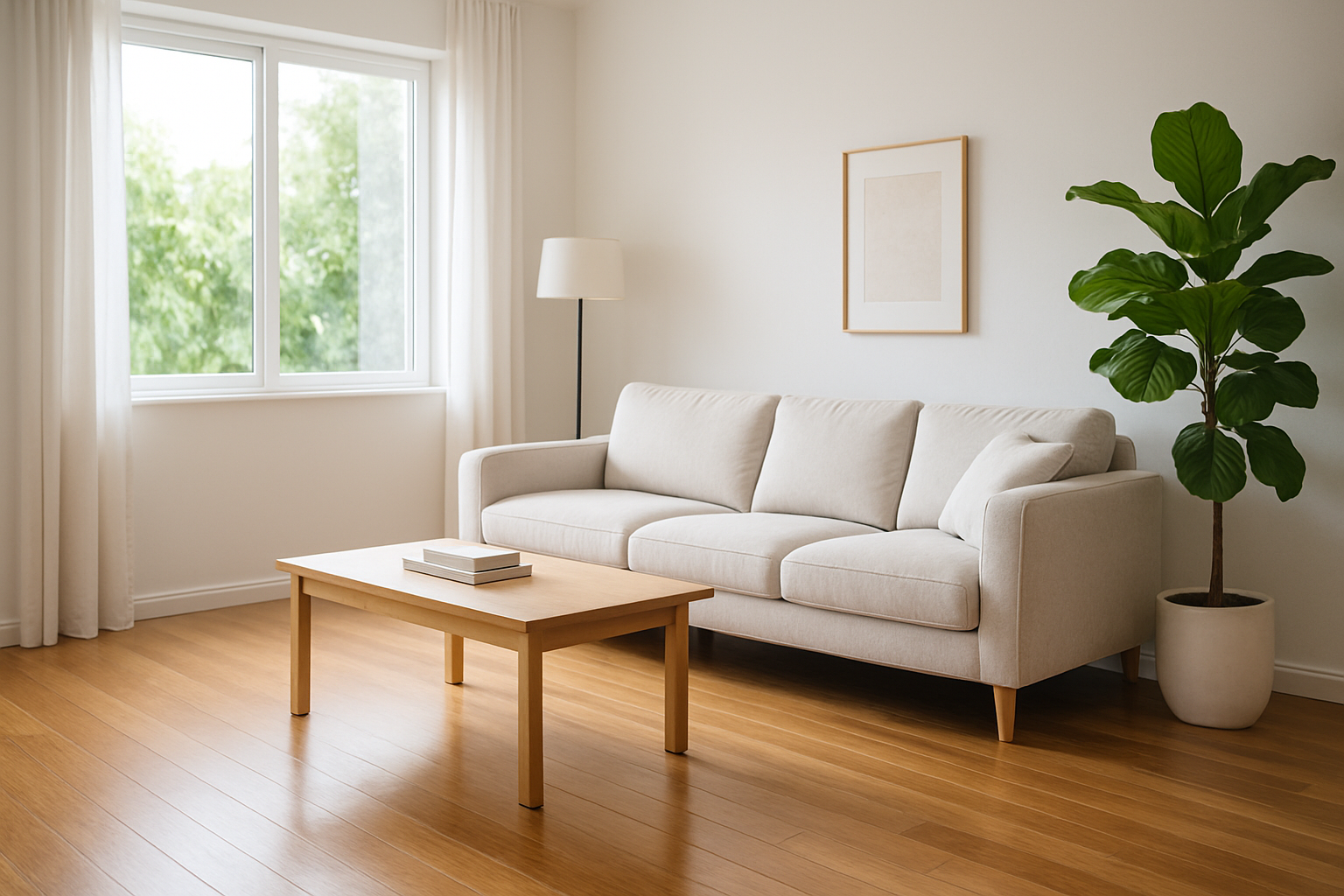
Thanksgiving is a time for gathering, gratitude, and unforgettable meals. But after the guests leave and the last slice of pie is gone, Clinton Township homeowners face a less festive reality: post-holiday cleaning. With studies showing that American households generate up to 25% more waste during the holidays EPA , tackling the clutter and mess swiftly is essential. If you’re searching for effective ways to restore your home or looking for professional residential cleaning in Clinton Township, MI , you’re in the right place. What You Need to Know: A thorough post-Thanksgiving cleaning goes beyond wiping down counters. Greasy stovetops, stained carpets, and overflowing trash bins are just the start. Left unchecked, these issues can attract pests, create odors, and even lead to long-term damage. For residents in Clinton Township—and nearby areas like Troy and Sterling Heights—knowing what to clean, and how, can save hours of frustration and keep your living space healthy. Key takeaways: Holiday messes are more complex than everyday cleaning Prompt cleaning prevents lasting stains and odors Local cleaning services can be a valuable resource Detailed Breakdown of the Topic 1. Kitchen Deep Clean After Thanksgiving, the kitchen needs extra attention: Clear leftover food from the refrigerator and pantry. Toss expired items and wipe shelves with a mild disinfectant. Degrease stovetops, oven doors, and backsplashes. Use baking soda paste for stubborn stains. Sanitize countertops and cabinet handles. These high-touch areas harbor bacteria. Sweep and mop floors, focusing on corners where crumbs accumulate. 2. Dining and Living Areas Vacuum carpets and rugs, especially under the dining table. According to the Carpet and Rug Institute , vacuuming removes up to 80% of dry soil. Spot-clean upholstery and cushions. Blot spills immediately with a gentle cleanser. Dust shelves, baseboards, and decorative items to remove food particles and dust. 3. Bathrooms Disinfect sinks, faucets, and toilet handles. Holidays mean more guests and higher germ exposure. Replace used towels and empty trash bins. Scrub floors and wipe mirrors for a fresh finish. 4. Trash and Recycling Separate recyclables from food waste. Clinton Township’s curbside recycling program makes this easy. Take out all garbage promptly to prevent odors and pests. 5. Entryways and High-Traffic Zones Sweep and mop entryways to remove tracked-in dirt. Wipe down doorknobs, light switches, and handrails. If tackling all this feels overwhelming, consider hiring a local expert. Touch of Class Cleaning Services offers residential cleaning in Clinton Township, MI, and nearby cities , providing deep cleaning and move-in/move-out solutions tailored to your needs. Common Questions and Clear Answers Q: How soon should I start cleaning after Thanksgiving? A: Begin within 24 hours to prevent stains, odors, and pest attraction. Prioritize food storage, trash removal, and visible messes first. Q: What cleaning products are safe for my family and pets? A: Opt for EPA-approved, non-toxic cleaners . Vinegar, baking soda, and hydrogen peroxide are effective and safe for most surfaces. Q: Do I need professional help for post-holiday cleaning? A: If you hosted a large gathering or notice difficult stains, hiring a professional service like Touch of Class Cleaning Services can save time and ensure a thorough job. Many residents in Troy, Sterling Heights, and Clinton Township rely on experts for deep cleaning and specialty services like Airbnb turnovers and construction cleaning . Mistakes to Avoid Delaying cleanup: Waiting days increases the risk of permanent stains and lingering odors. Ignoring hidden areas: Food crumbs under furniture or behind appliances can attract rodents and insects. Using harsh chemicals: Overly strong cleaners may damage surfaces or leave residues that are harmful to children and pets. Key takeaways: Act fast to prevent lasting messes Clean all areas, including less visible spots Choose safe, effective cleaning products Practical Tips You Can Apply Today 1. Create a Cleaning Schedule Break the work into manageable tasks over a couple of days. Assign family members specific rooms or duties. 2. Stock Up on Supplies Make sure you have microfiber cloths, an all-purpose cleaner, a good vacuum, mop, and garbage bags before starting. 3. Use Local Resources Clinton Township offers recycling and hazardous waste disposal. Take advantage of these programs to clear out clutter responsibly. 4. Call in the Pros When Needed If the job is too big or you want guaranteed results, schedule a residential cleaning service. Touch of Class Cleaning Services specializes in deep cleaning, move-in/move-out, and even Airbnb cleaning, ensuring your home meets the highest standards. Key takeaways: Organize your efforts for efficiency Use the right tools and resources Don’t hesitate to get professional help Conclusion Post-Thanksgiving cleaning is more than a chore—it’s an investment in your home’s comfort and health. By following a clear, thorough checklist, Clinton Township residents can quickly reclaim their space. Remember, prompt action and the right techniques make all the difference. If you need extra support, professional residential cleaning services in Clinton Township, MI, are just a call away. For expert help, visit Touch of Class Cleaning Services and enjoy peace of mind knowing your home is in spotless condition.
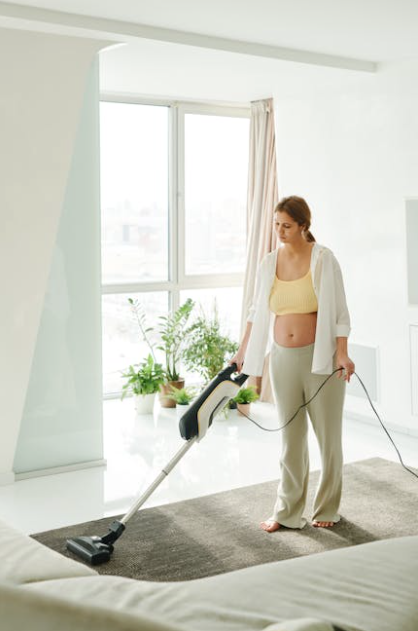
Photo by Matilda Wormwood on Pexels Introduction: When it comes to maintaining a clean home, understanding residential cleaning prices is essential for making informed decisions. If you're located in the Metro Detroit area, you might be wondering what to expect regarding costs for various cleaning services. This article will explore the different factors influencing cleaning prices, provide insights into different types of cleaning services, and help you find reliable residential cleaning options in cities like Troy, Sterling Heights, and Clinton Township. What Influences Residential Cleaning Prices? The cost of residential cleaning services can vary significantly based on several factors: 1. Size of the Home: Larger homes typically require more time and resources to clean. Most cleaning companies charge based on the square footage of your home. 2. Type of Cleaning Service: Different services come with different price tags. For instance, deep cleaning services tend to be more costly than standard cleaning due to the additional labor and detail involved. 3. Frequency of Cleaning: Regular cleaning services may offer discounts for ongoing contracts, while one-time deep cleans or move-in/move-out services often come at a premium. 4. Location: Prices can also differ depending on the specific area within Metro Detroit . For example, residential cleaning near me in Sterling Heights might have different rates compared to those in Troy or Clinton Township . 5. Additional Services: If you require specialized cleaning solutions—like construction cleaning , Airbnb cleaning , or post-party clean-ups —expect to pay extra for these tailored services. How Much Should You Expect to Pay? Here’s a general idea of what you might expect to pay for various cleaning services in Metro Detroit: - Standard Cleaning: $100 - $300 for an average-sized home (approximately 1,500 sq ft). - Deep Cleaning: $200 - $400 depending on the level of detail and size of the home. - Move-In/Move-Out Cleaning: $150 - $600 based on the condition of the property and its size. - Construction Cleaning: $250 - $1,000 depending on the extent of the work needed. - Airbnb Cleaning: $75 - $150 per visit, depending on the size and amenities. These are approximate ranges and can vary by company. Always request a quote from your chosen service provider. Key Benefits of Hiring Professional Cleaning Services? Investing in professional cleaning services offers numerous benefits: 1. Time-Saving: With our busy lives, hiring a cleaning service allows you to focus on what really matters—your family, work, and hobbies. 2. Expertise: Professionals come equipped with the right tools and knowledge to tackle even the toughest messes, ensuring a thorough clean every time. 3. Customization: Many cleaning companies offer customizable packages to fit your needs, whether you require a one-time deep clean or regular upkeep. 4. Healthier Environment: Regular cleaning helps reduce allergens and bacteria, promoting a healthier living space. 5. Peace of Mind: Knowing that your home is professionally cleaned provides peace of mind, allowing you to enjoy your space without the stress of chores. Choosing the Right Residential Cleaning Service in Metro Detroit? Finding the right cleaning service can seem daunting, but here are some tips to simplify the process: 1. **Research Local Options**: Search for residential cleaning services near me in Troy MI, Sterling Heights MI, or Clinton Township MI. Read reviews and testimonials to gauge customer satisfaction. 2. **Ask for Recommendations**: Word of mouth is powerful. Ask friends, family, or neighbors for their recommendations on reliable cleaning companies. 3. **Check Credentials**: Ensure that the cleaning company is licensed and insured. This protects you in case of any accidents during the cleaning process. 4. **Request Quotes**: Don’t hesitate to ask multiple companies for quotes. This will give you a better idea of the going rates and help you find the best deal. 5. **Inquire About Products**: If you have allergies or specific preferences, ask about the cleaning solutions used by the company. Many now offer eco-friendly options. Conclusion : Understanding residential cleaning prices in Metro Detroit is crucial for homeowners looking to maintain a clean and healthy environment. By considering the factors that influence pricing and knowing what to expect for different cleaning services, you can make informed decisions that suit your budget and needs. Whether you’re searching for a one-time deep clean or regular maintenance, the right residential cleaning service can save you time and provide a welcoming atmosphere in your home. For reliable and high-quality cleaning services, visit Touch of Class Cleaning Services at https://touchofclasscleaningservices.com . Your clean home awaits!

Introduction : Every home faces unique cleaning challenges that require special attention and techniques. In this blog post, we'll address some of the most common tough cleaning issues—mold, grease, and hard water stains—and provide you with effective solutions to tackle them. 1. Mold Removal Why It's a Problem: Mold not only looks unpleasant but can also pose serious health risks, including respiratory issues and allergies. It thrives in damp, dark areas such as bathrooms, basements, and behind walls. Effective Solutions: Identify the Source: Find and fix any leaks or sources of moisture to prevent mold from returning. Vinegar and Baking Soda: Spray white vinegar onto the moldy surface and let it sit for an hour. Scrub the area with a brush and rinse with water. For stubborn mold, create a paste with baking soda and water, apply it to the mold, and scrub after 15 minutes. Hydrogen Peroxide: Apply 3% hydrogen peroxide to the mold, let it sit for 10 minutes, then scrub and rinse. Tea Tree Oil: Mix one teaspoon of tea tree oil with one cup of water. Spray the solution on the mold, let it sit, and wipe away without rinsing. Preventive Tips: Use dehumidifiers in damp areas. Ensure proper ventilation, especially in bathrooms and kitchens. Regularly clean and inspect areas prone to moisture. 2. Grease Build-Up Why It's a Problem: Grease can accumulate quickly in kitchens, creating a sticky, hard-to-clean residue on surfaces, appliances, and cookware. Effective Solutions: Dish Soap and Hot Water: Soak greasy items in hot water with a few drops of dish soap. Scrub with a sponge or brush to remove the grease. Baking Soda: Sprinkle baking soda on greasy surfaces, let it sit for a few minutes, then scrub with a damp sponge. Vinegar: Mix equal parts white vinegar and water in a spray bottle. Spray the greasy area, let it sit for a few minutes, then wipe clean with a cloth. Commercial Degreasers: For tough grease build-up, use a commercial degreaser following the manufacturer's instructions. Preventive Tips: Wipe down surfaces regularly to prevent grease build-up. Clean spills and splatters immediately. Use splatter guards when cooking. 3. Hard Water Stains Why It's a Problem: Hard water stains, caused by mineral deposits from water, can leave unsightly marks on glass, faucets, and tiles. Effective Solutions: Vinegar: Soak a cloth in white vinegar and wrap it around the stained area. Let it sit for an hour, then scrub with a brush or sponge. Lemon Juice: Apply lemon juice to the stains, let it sit for 10 minutes, and scrub with a sponge. Baking Soda Paste: Make a paste with baking soda and water. Apply it to the stains, let it sit for 15 minutes, then scrub and rinse. Commercial Cleaners: Use a commercial hard water stain remover for stubborn stains, following the manufacturer's instructions. Preventive Tips: Dry surfaces immediately after they get wet. Install a water softener to reduce mineral content in the water. Use squeegees on glass surfaces after each use. Conclusion: Tackling tough cleaning challenges like mold, grease, and hard water stains requires the right tools and techniques. By following these effective solutions and preventive tips, you can keep your home clean and free from these common issues. If you need professional assistance, don't hesitate to contact us for expert cleaning services tailored to your needs. Call to Action: For more cleaning tips and expert advice, follow our blog and connect with us on social media. If you're facing tough cleaning challenges, our professional cleaning team is here to help—contact us today to schedule a consultation!
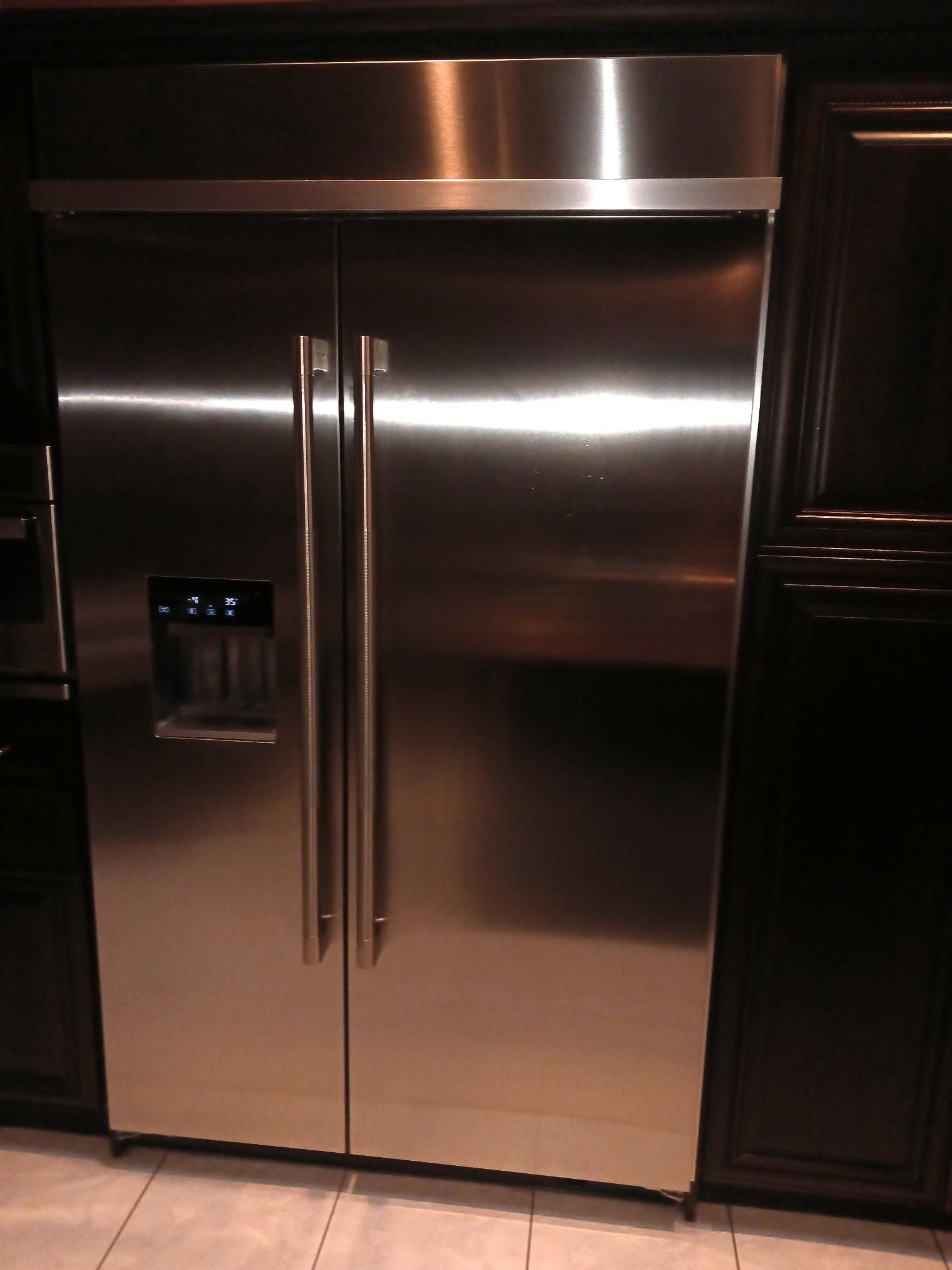
Stainless steel appliances are prized for their modern look and durability, making them a popular choice in kitchens. However, their sleek appearance can quickly be marred by fingerprints, smudges, and water spots if not properly cared for. Understanding how to clean and maintain stainless steel appliances is essential to keep them looking their best. In this comprehensive guide, we'll explore effective techniques, essential supplies, and maintenance tips to ensure your stainless steel appliances shine. Understanding Stainless Steel Stainless steel is a durable and corrosion-resistant material made from a combination of metals, including chromium, nickel, and iron. Its smooth surface makes it susceptible to fingerprints and smudges, requiring regular cleaning to maintain its aesthetic appeal. Essential Cleaning Supplies Before you begin cleaning your stainless steel appliances, gather these supplies: Microfiber cloth: Ideal for gentle cleaning and polishing without scratching the surface. Stainless steel cleaner: Choose a cleaner specifically formulated for stainless steel surfaces to avoid damage and streaking. Warm water: Use for basic cleaning and rinsing. White vinegar: Effective for removing tough stains, water spots, and enhancing shine. Rubbing alcohol: Helps dissolve grease and sanitize surfaces effectively. Step-by-Step Cleaning Process 1. Daily Maintenance Regular Wipe Downs: Use a microfiber cloth dampened with warm water to wipe down your appliances daily. This removes surface dust, oils, and light fingerprints. Buffing: After cleaning, buff the surface with a dry microfiber cloth to restore shine and remove any remaining streaks. 2. Deep Cleaning Apply Stainless Steel Cleaner: Apply a small amount of stainless steel cleaner onto a clean microfiber cloth. Wipe in the Direction of the Grain: If your appliance has a visible grain, wipe in the direction of the grain to minimize streaks. Rinse and Dry: Rinse the surface with clean water to remove cleaner residue, then dry thoroughly with a dry microfiber cloth to prevent water spots. 3. Removing Stubborn Stains Vinegar Solution: For tougher stains and water spots, mix equal parts white vinegar and water. Dampen a microfiber cloth with the solution and gently rub the affected area. Rubbing Alcohol: Apply rubbing alcohol to a cloth to remove grease spots or stubborn residues. Follow up with a stainless steel cleaner for a polished finish. Additional Tips for Maintenance Avoid Abrasive Cleaners: Abrasive cleaners, steel wool, or scrubbing pads can scratch stainless steel surfaces. Stick to soft microfiber cloths and non-abrasive cleaners. Use Stainless Steel Polish: Periodically apply a stainless steel polish or protective coating to maintain shine and resist fingerprints. Regular Inspections: Inspect your appliances regularly for any signs of damage or discoloration. Address issues promptly to prevent further damage. Conclusion With proper care and maintenance, cleaning stainless steel appliances can be straightforward and rewarding. Incorporate these detailed cleaning techniques and maintenance tips into your routine to preserve the beauty and durability of your stainless steel appliances for years to come. Whether it's your refrigerator, stove, dishwasher, or microwave, a little effort in cleaning and maintaining your stainless steel appliances will ensure they continue to enhance your kitchen's aesthetic appeal. By following these guidelines, you can enjoy the sleek look and functionality of stainless steel appliances in your kitchen without the worry of unsightly smudges or stains. For professional results or if you're unsure about any cleaning methods, consider consulting a cleaning service experienced in handling stainless steel surfaces.

Spring is the perfect time to refresh your home and get it sparkling clean after the winter months. To help you tackle this annual task efficiently, we've created the ultimate spring cleaning checklist. Follow these tips for a spotless home that feels brand new! 1. Decluttering Strategies Before you start cleaning, it's essential to declutter your space. Here's how: Room-by-room approach: Tackle one room at a time to avoid feeling overwhelmed. Sort items: Create piles for items to keep, donate, recycle, or discard. Storage solutions: Invest in storage bins, shelves, and organizers to keep things tidy. 2. Deep Cleaning Tips for Each Room Kitchen : Refrigerator: Empty, defrost, and clean shelves and drawers. Discard expired items. Oven and Microwave: Use a baking soda paste or commercial cleaner to remove grime. Cabinets and Drawers: Wipe down surfaces and reorganize contents. Countertops and Sink: Use a disinfectant to clean and polish. Living Room: Furniture: Vacuum upholstery, clean under cushions, and polish wooden surfaces. Carpets and Rugs: Deep clean with a carpet cleaner or hire a professional. Windows: Wash windows, sills, and blinds. Dusting: Dust all surfaces, including ceiling fans and light fixtures. Bathrooms : Shower and Tub: Scrub tiles, grout, and fixtures with a strong cleaner. Toilet: Clean inside and out with a disinfectant. Sink and Countertops: Remove soap scum and polish surfaces. Mirrors and Windows: Use a glass cleaner for a streak-free shine. Bedrooms : Bedding: Wash all linens, including mattress covers and pillowcases. Closets: Declutter, organize, and wipe down shelves and doors. Floors: Vacuum carpets or mop hardwood floors. Dusting: Dust all surfaces, including baseboards and lamps. Garage : Declutter: Sort through tools, sports equipment, and seasonal items. Organize: Use shelves, hooks, and bins to keep things in order. Sweep and Clean: Remove debris and clean the floor. 3. Natural Cleaning Solutions Using natural cleaning products can be just as effective as commercial ones and safer for your home and the environment. Vinegar and Baking Soda: Great for cleaning countertops, sinks, and removing odors. Lemon Juice: Perfect for cutting through grease and leaving a fresh scent. Essential Oils: Add to your cleaning solutions for a pleasant aroma and extra disinfecting power. 4. Tips for Organizing Closets and Storage Spaces Seasonal Rotation: Store out-of-season clothes in labeled bins. Use Vertical Space: Install shelves or hooks to maximize space. Label Everything: Use labels to keep track of where items belong. 5. Maintenance Tips to Keep the House Clean Longer Daily Habits: Develop small daily habits like wiping down counters and doing a quick tidy-up. Weekly Routines: Set aside time each week for more thorough cleaning tasks. Family Involvement: Get everyone in the household involved in maintaining cleanliness. By following this comprehensive spring cleaning checklist, you'll not only achieve a spotless home but also create a more organized and enjoyable living space. Happy cleaning!

The cleaning industry is continuously evolving, driven by advancements in technology, a greater emphasis on sustainability, and changing consumer preferences. Staying updated with the latest trends can help your cleaning business stay competitive and meet customer expectations. Here are some of the latest trends in cleaning: 1. Green Cleaning and Sustainability Eco-Friendly Products: There is a growing demand for cleaning products that are environmentally friendly, biodegradable, and non-toxic. Brands are focusing on creating products that reduce environmental impact without compromising on effectiveness. Sustainable Practices: Companies are adopting sustainable practices such as using reusable cleaning tools, minimizing water usage, and implementing recycling programs. Clients are increasingly looking for services that prioritize the planet. 2. Advanced Cleaning Technologies Robotic Cleaners: Robotic vacuums and mops are becoming more sophisticated and popular, especially for commercial spaces. These devices can work autonomously, saving time and ensuring consistent cleaning. UV-C Light Technology: UV-C light is being used for its disinfecting properties, especially in healthcare and hospitality settings. It can effectively kill bacteria and viruses on surfaces without the use of chemicals. 3. Smart Cleaning Devices IoT-Enabled Tools: Internet of Things (IoT) technology is making its way into cleaning devices, allowing for real-time monitoring and management. Smart vacuums, for example, can be controlled via smartphone apps, providing convenience and efficiency. Automated Dispensing Systems: These systems ensure the right amount of cleaning solution is used, reducing waste and ensuring consistent cleaning results. 4. Health and Hygiene Focus High-Touch Surface Cleaning: With the increased awareness of hygiene, there is a heightened focus on cleaning and disinfecting high-touch surfaces such as doorknobs, light switches, and countertops. Antimicrobial Treatments: Some companies are offering antimicrobial surface treatments that provide long-lasting protection against bacteria and viruses. 5. Specialized Cleaning Services Deep Cleaning and Sanitization: There is a growing demand for deep cleaning services, especially in response to health crises like the COVID-19 pandemic. These services go beyond regular cleaning to ensure thorough disinfection. Air Duct and Vent Cleaning: As indoor air quality becomes a priority, services that clean and sanitize air ducts and vents are becoming more popular. 6. Training and Certification Professional Training Programs: To ensure high standards, cleaning companies are investing in training programs and certifications for their staff. This not only improves service quality but also instills confidence in clients. OSHA and CDC Guidelines: Adhering to guidelines from organizations like OSHA and the CDC ensures that cleaning practices meet health and safety standards. 7. Customer-Centric Services Customized Cleaning Plans: Offering tailored cleaning plans based on individual client needs and preferences is becoming a key differentiator. Transparent Communication: Providing clear communication regarding cleaning processes, products used, and safety measures helps build trust with clients. 8. Increased Use of Data and Analytics Performance Tracking: Data analytics are being used to track the performance of cleaning routines, identify areas that need improvement, and ensure consistent quality. Customer Feedback Integration: Utilizing customer feedback to refine and enhance cleaning services ensures that businesses meet client expectations. By embracing these trends, your cleaning business can not only improve efficiency and effectiveness but also align with the evolving needs and values of your clients. Staying ahead of industry developments will help you provide top-notch service and maintain a competitive edge.

In today's fast-paced world, finding the time to keep your home or office spotless can be a challenge. That’s where professional cleaning services come in handy. However, when it comes to choosing a cleaning company, it's crucial to ensure that the business you hire is legitimate, registered, insured, and bonded. Here’s why these factors are essential and how they can give you peace of mind. 1. Professionalism and Accountability A legitimate, registered cleaning business operates under the regulations and standards set by local authorities. This means they are committed to maintaining high standards of service and professionalism. When a business is registered, it shows that they are serious about their operations and are here to stay. This accountability ensures that they are reliable and dedicated to delivering quality services. 2. Insurance Protects You and Your Property Accidents can happen, even with the most careful cleaning professionals. When a cleaning company is insured, it means that any damage or loss that occurs during the cleaning process will be covered. This includes both property damage and any potential injuries that may happen on your premises. Hiring an insured cleaning business protects you from unexpected costs and ensures that you are not held liable for any accidents. 3. Bonding Provides Financial Security A bonded cleaning business offers an additional layer of protection. Being bonded means the company has secured a surety bond, which is a form of insurance that protects you against losses caused by the company’s failure to meet contractual obligations. If an employee steals from you or if the job is not completed as agreed, the bond ensures you are compensated. This financial security is a significant reassurance that you are protected against potential risks. 4. Trustworthy and Vetted Employees Registered, insured, and bonded companies often have strict hiring processes, including background checks and thorough vetting of their employees. This means you can trust that the individuals entering your home or office are reliable and have been carefully selected. You can have peace of mind knowing that your property is in safe hands. 5. Compliance with Health and Safety Regulations Cleaning can involve the use of various chemicals and equipment that require proper handling to ensure safety. A legitimate cleaning business complies with health and safety regulations, ensuring that all cleaning practices are safe and environmentally friendly. This compliance not only protects the cleaning staff but also ensures the safety of your family or employees. 6. Consistent Quality of Service When you hire a registered, insured, and bonded cleaning business, you are more likely to receive consistent and high-quality service. These companies often have trained staff who follow standard operating procedures, ensuring that every cleaning task is performed to the highest standard. You can expect the same level of cleanliness and professionalism every time. Conclusion Hiring a legitimate, registered, insured, and bonded cleaning business is not just about peace of mind; it’s about ensuring you receive the best possible service with the highest level of protection. These credentials signify a company’s commitment to professionalism, accountability, and customer satisfaction. When you choose a cleaning service that meets these criteria, you are making a smart investment in the cleanliness and safety of your home or office. So, the next time you need a cleaning service, remember to check for these essential qualifications. Your property and peace of mind are worth it! If you need professional cleaning services that are legitimate, registered, insured, and bonded, don’t hesitate to contact us. We are committed to providing top-notch cleaning solutions with the highest level of security and professionalism. Reach out to us today for a spotless and worry-free cleaning experience!
For more information on our cleaning services, call us today at (586) 388-4724.
